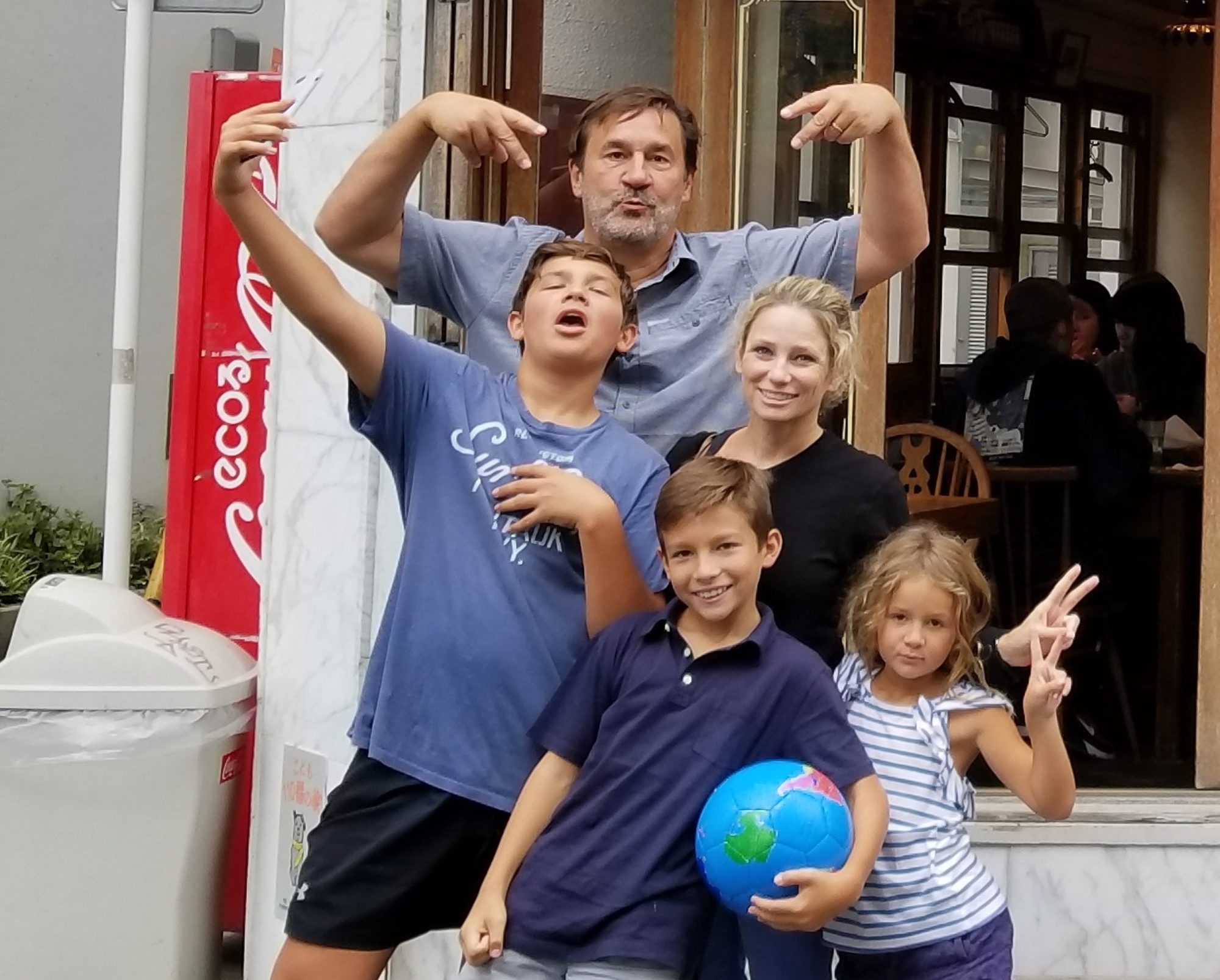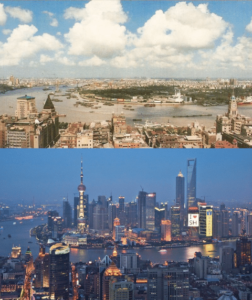I often wonder about Tiananmen Square, 1989. Fake news. Perception and reality. Truth. I know I saw it then on world television. I did, right? Years on, I have tried to search the internet for proof from within China, to no avail. Today, the NY Times and Google are not available in China. Controlling and changing the shifting narrative to a population of 1,300,000,000 people is critical to the government.
I’ve had 6 or more different tour guides in the 4 visits to China over the last 31 years. Each has been notable in their varied freedom in disclosing the “truth” about China and the information flow here.
The first guide, in 1986, was a Communist Party member through and through, young and on script. Interfacing with Western dignitaries in 1986 was a huge deal, privileged since his parents were Communist party members. I often wonder where he is now.
In 2008, Stacia and I had a guide whose most controversial statement came when I asked if people really ate dog. His reply, “I enjoy Schnauzer best, German Shepherd too tough for me.” When asked by Stacia why there was barely a single bird outside the Forbidden City, the answer is still humorous and telling. He stated, with great emphasis on the end of the sentences, “In China, if it have leg, and it not table or chair, we EAT IT! If it have wing, and it not airplane…we EAT IT!”
Now dear reader, before you accuse me of racist or xenophobic chatter, I will educate you as to why Chinese people speak English the way they do. In Chinese, there are no plurals and no tenses! For years, we had a Tibetan friend who might remark that she “go to store for egg.” No matter how many times I deftly corrected it, she giggled and continued. Now I understand why. Further, one might have noticed that Chinese people often sound like they are arguing or angry when they speak.
And the dialog is often shouted. This is due to the fact that there are no subtle shifting nuances in the way a sound is made. Any shift represents an entirely NEW WORD and character. No one has ever explained either until this visit. I get now.
We next learned of an interesting phenomenon in China that explains why some visits and some cities have unbearable pollution, while others are crystal clear and blue skies. It’s simply called, “conference blue”, or “Trump blue”, by local Chinese. This refers to the government mandated shutting down of factories far and wide for a month prior to the arrival of foreigners who might cast China in a bad light should they experience what the Chinese people encounter. In 2008, during the Olympics in Beijing, it was referred to as Olympic blue, as the factories were closed for 3 months prior.
On this day, our tour guide took us to see the Hutongs. Hutong, meaning “Waterwell”, are more akin to a small neighborhood, each including schools, a hospital, a food market and more. Hutongs shelters themselves house entire multi-generations under one roof and are rapidly disappearing. They are charming and a must see before they are removed in the normal course of advancement of society.
Out recent guide came from a Communist party family as well. His father is a chauffeur for party leaders, of the highest level. There are 234 security levels in China. Our guide’s father was a “1”. Once he told us of “Isenberg”, an Israeli arms dealer who was in central Beijing the day of the Tiananmen Square massacre. As the student protests erupted, he was hastily ushered in the limo to the airport to return him to home safely. Mr. Isenberg was told to remain quiet of what he saw so as not to jeopardize his standing with government procurement opportunities.
Our bus did not have a “bus monitor” as is often the case to make sure that the tour guide is “on message” of the Communist party. He told us that there is a 2 km radius of cameras and listening devices surrounding Tiananmen Square.
He noted that Chinese learn by learning English to understand the outside world and that the Chinese can learn much from other countries, yet cautioned that the United States could learn well from other countries. He felt that the Chinese government sends subtle long-term messages, whereas the US is direct and in your face, and too short-term oriented.
Fun chatter:
In the parks we watched many people play a board game called “Farmers against the Landlord”!
Apparently, all children need to have the same haircut, and the same color hair, even if you are born with a different color you must dye it black!
Walking around Beijing, you might think you’re in “any city US”. Great stat. The United States has 24 sq retail per person vs. 3 square feet per person in China and 2 square feet per person in Germany. The US is dramatically overbuilt in retail.
A good read on Chinese people: https://www.tripsavvy.com/what-are-chinese-people-like-1494970
Finally, observations from someone in our group:
“People are really nice in China. In fact, so far people nicer everywhere than Paris.”
“What I see is a country where people are trying REALLY hard and I sure wouldn’t want to bet against them”




